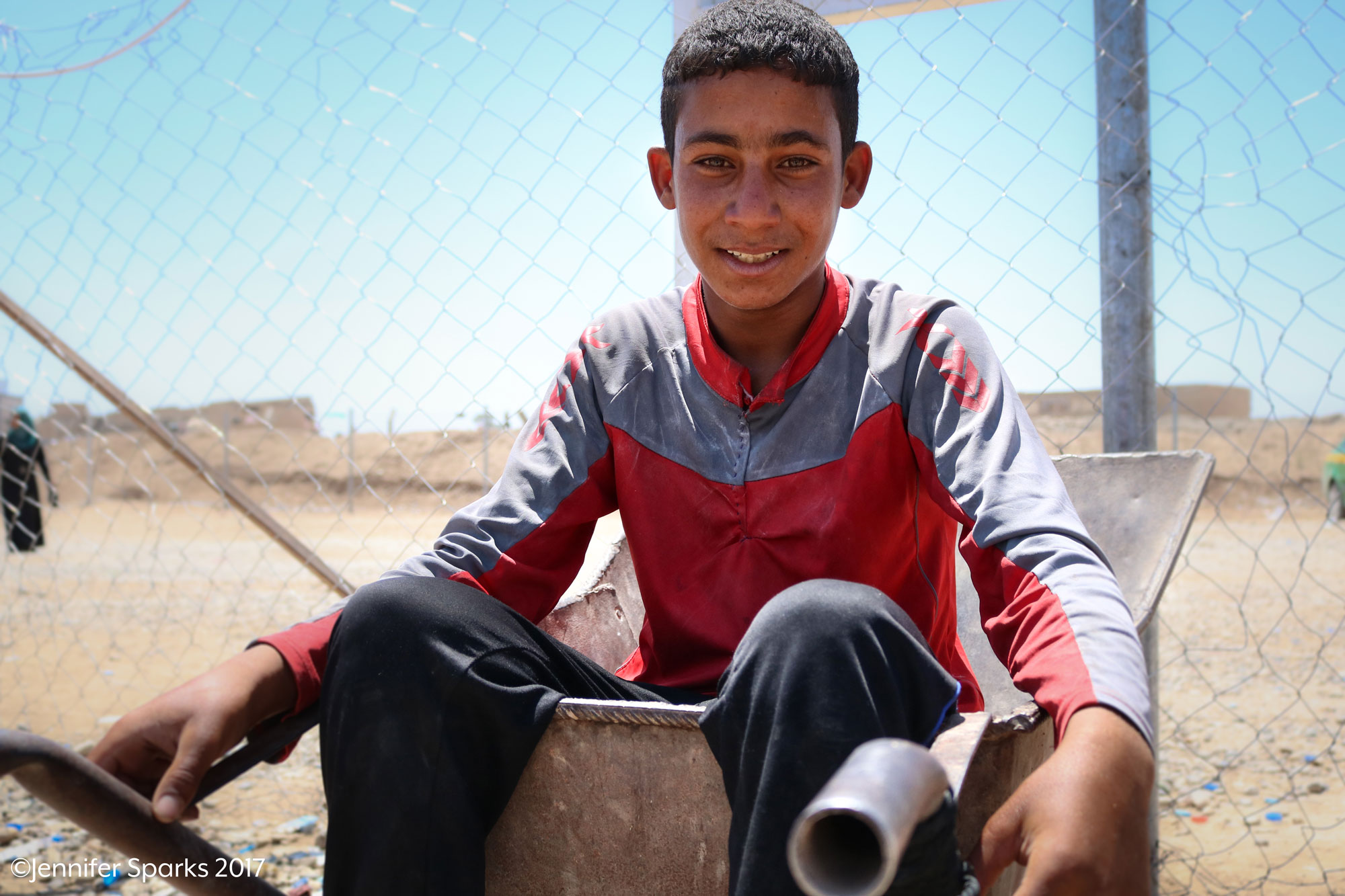Children in the Crosshairs
After ISIS took over northern Syria and Iraq in 2014, they began a reign that set the area back decades. Children were among the most affected, facing obstacles not only to their physical and mental well-being, but also their ability to access clean water, food, shelter, education, healthcare and so much more. In autumn 2016, a coalition of forces began the slow work of retaking territory from ISIS. These are some of the children who were impacted.
(All photos taken on assignment for UNICEF.)

Three girls recently displaced from their homes in Mosul wait in a camp for displaced people. Over the course of 2014-2017, over three million people inside Iraq’s borders were displaced from their homes.

“She only loves me because I feed her.” Arwa and her grandmother are close. They take solace in each other’s company while living in a camp for displaced people in northern Iraq.

Amina’s left hand is non-functional after she was injured in a bombing. Read about Amina and other children in Mosul receiving psycho-social support to help them cope with the difficulties of war here.

Noora gets a check up from an NGO nurse who is checking for nutrition levels and growth progress.

Mohammed (2), with his mother, receives the polio vaccine administered at the Al-Quds Primary Health Care Centre in West Mosul, Iraq. Under ISIS, residents of Iraq struggled to access regular health care, including vaccinations. UNICEF and other agencies are working with the government to restart regular vaccination programs for children across the country. Read more here.

A man on a scooter carrying brightly colored balloons drives by the ruins of a neighborhood in West Mosul.
The building on the right is a former ISIS sniper position. They held over 200 people hostage in this building, which was eventually hit by an airstrike to clear the position. “An airstrike like that is normal,” said an Iraqi soldier guarding the street. The number of casualties is unknown.

These boys attend remedial classes and psycho-social support at a child-friendly space in a camp for displaced people in northern Iraq. Having missed so much school, and being very mobile during their displacement, children risk missing out on a significant amount of school.

While the mothers learn how to make nutritious meals from the food rations and produce available in the camp, children like Hamed take the opportunity to do normal kid things like play with blocks or brush up on their soccer skills.

"It's pretty hot, so people don't want to carry things back to their tents. That's what I'm here for. I move stuff across the camp in my wheelbarrow. People pay me 250-500 Iraqi dinar ($.20-$.40)." Displaced from his home, Hussein has little chance to go to school as he is now the primary breadwinner for his family of 15. Read more here.

This is a 14 month old baby—worryingly malnourished and struggling to survive. Many. mothers stopped producing breast milk, having been malnourished themselves. With money scarce and limited food available on the open market around occupied Mosul, families fled with the threat of starvation imminent. Read more here and here.

Zakaria is excited to get his next round of high-energy biscuits. The dense, calorie rich biscuits help malnourished children put on weight and recover nutrients missing in their daily diets. Read more about nutrition activities in Iraq here.
As for his hair? There’s no helping it. “I’ve tried everything,” his mother bemoans as she makes another attempt at flattening it. “Nothing works.”











